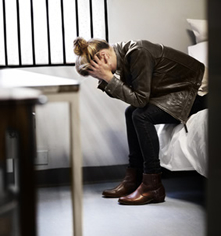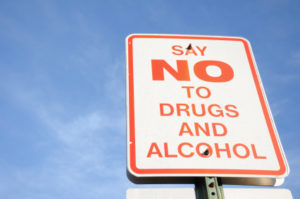During a drug or alcohol withdrawal program, you or your loved one will face a variety of unpleasant experiences. Depending on the substance that was abused and the duration of time that you or your loved one have been using the substance, the severity of withdrawal symptoms may vary.
Regardless of the specific details, learning a few ways to cope during the withdrawal process will make it easier to get through the first step of recovery.
Learn About the Withdrawal Symptoms
Every substance is different, so the exact withdrawal symptoms that you or your loved one can expect may vary. By understanding what you can expect during withdrawal, the process becomes less intimidating and you or your loved one will not be caught by surprise when certain situations arise.
Although the specific details may vary, the symptoms that might arise include:
- The inability to sleep or insomnia
- Muscle aches throughout the body
- Headaches
- General moodiness
- Flu-like symptoms and chills
- Nausea or vomiting
- Cramping muscles, particularly in the abdomen
- Increased heart rate
Educate yourself or your loved one about the symptoms that are likely to develop during drug or alcohol withdrawal. The specific details and symptoms may vary, so look up the symptoms based on the substance that was abused.
Participate in Supervised Withdrawal
 Do not try to withdraw from drugs without help. Support is essential during the withdrawal process, especially if the substance that you or your loved one abused was alcohol, an opiate of any type or cocaine.
Do not try to withdraw from drugs without help. Support is essential during the withdrawal process, especially if the substance that you or your loved one abused was alcohol, an opiate of any type or cocaine.
Since the symptoms may be severe, it is important to have medical staff available to help manage any dangerous symptoms that may arise, such as an increased heart rate.
A medical doctor may help alleviate some of the symptoms during the withdrawal process so that you or your loved one is not facing the situation alone. Even if a doctor determines that it is not necessary to take any action, the support and guidance of medical professionals can provide peace of mind that you or your loved one is in a safe and comfortable environment.
Take Medications
During withdrawal, prescription medications may be available to reduce the impact of certain withdrawal symptoms.
Talk to the medical doctor when you or your loved one is entering a rehab facility to determine if medications are available and if it is possible to start taking them at the beginning of the program.
Take the medications as they are provided by a medical professional. The doctor will gradually reduce the dosage throughout the process as the withdrawal symptoms begin to taper off and become easier to handle.
Drink Water and Eat Nutritious Foods
Stay hydrated throughout the entire process. As the body removes the substance and toxins, you or your loved one may lose water through sweat, vomit and urine. Replace the water and stay hydrated by drinking water and juice throughout the day.
Although it may be tempting to skip meals due to nausea, it is also important to eat nutritious foods. Eat light and soothing options, like saltine crackers or fruit, in small amounts throughout the day.
Coping with drug or alcohol withdrawal is possible with the right strategy. With education, support and a careful diet and hydration plan, it is possible to get through the first step of recovery.
